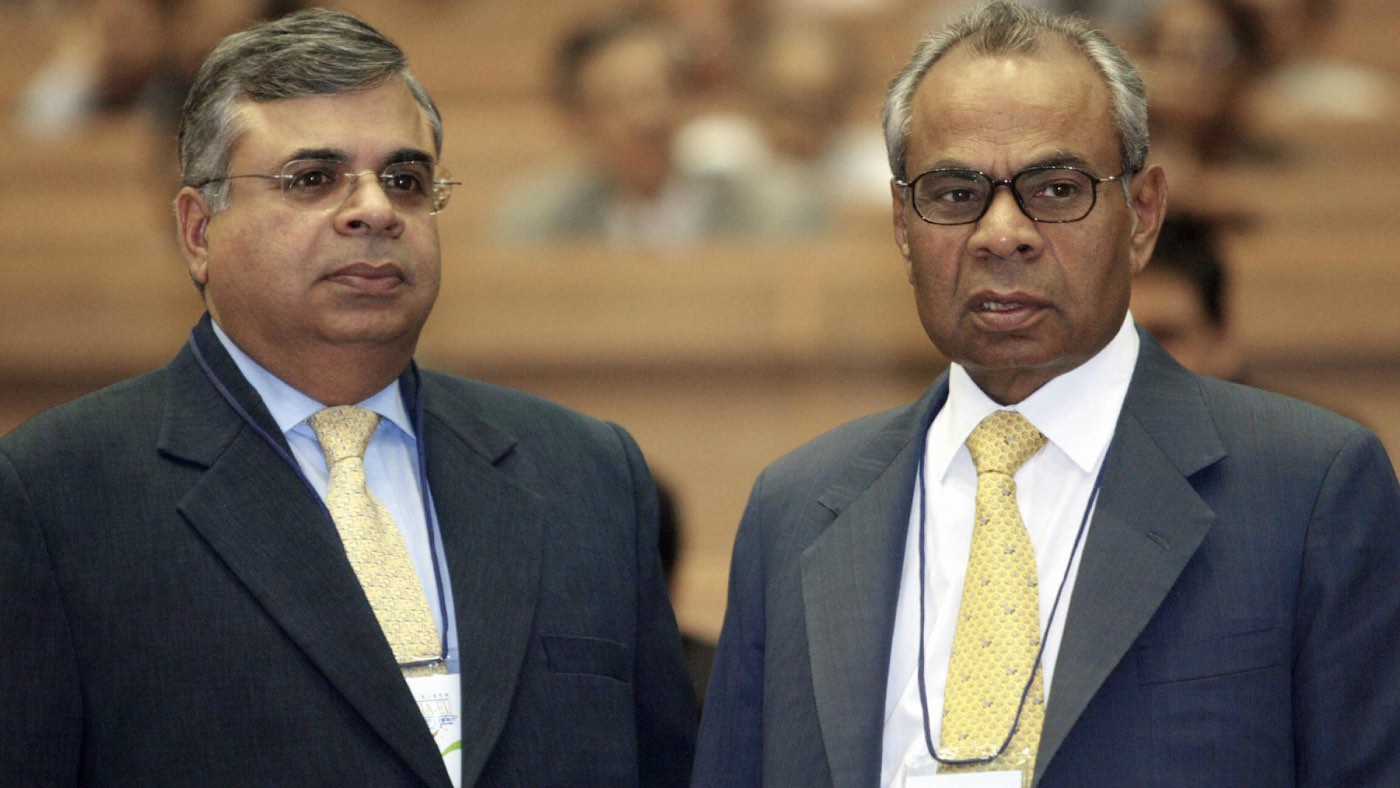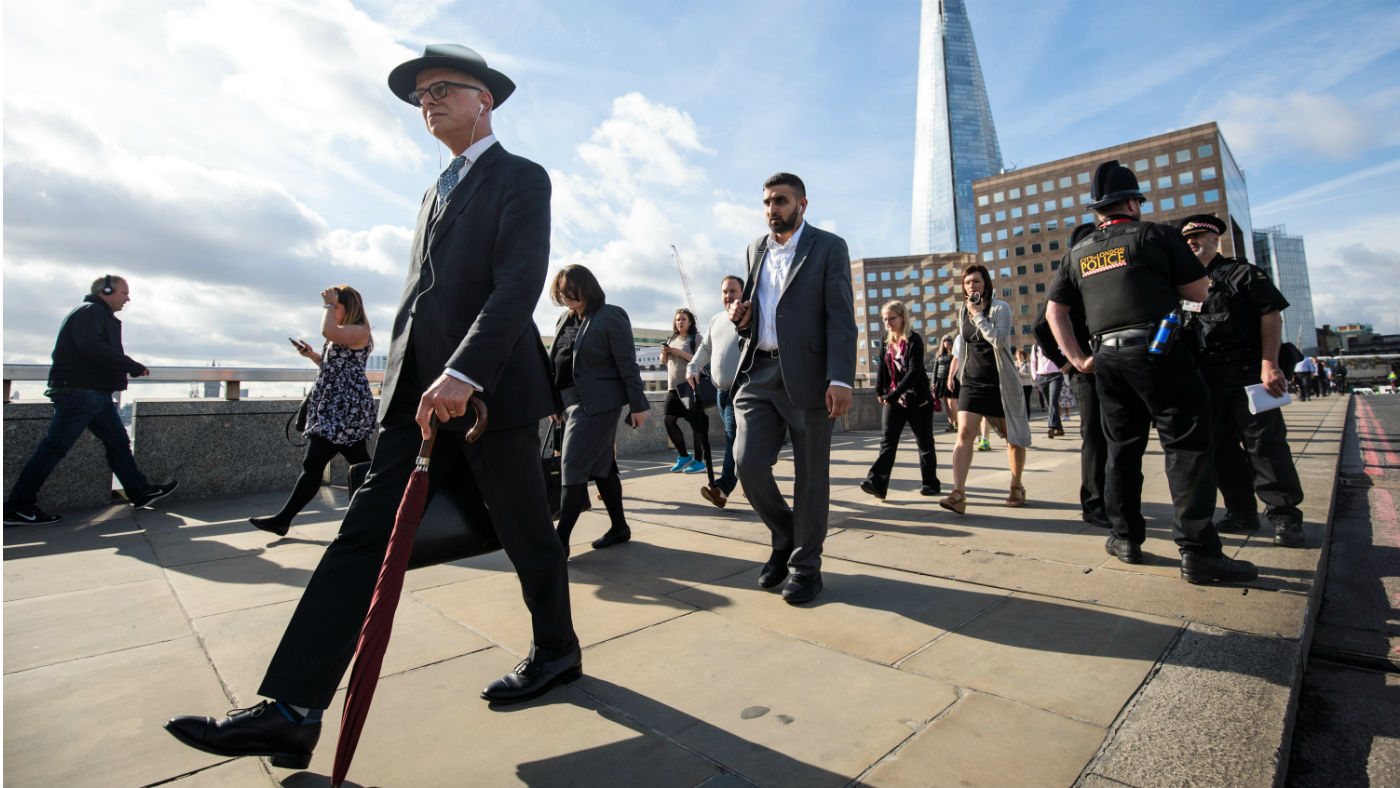Fat Cat Day highlights the pay gap
Britain’s top bosses have already earned more in 2018 than average workers will all year

A free daily email with the biggest news stories of the day – and the best features from TheWeek.com
You are now subscribed
Your newsletter sign-up was successful
Britain’s top executives have already earned more in 2018 than their average workers will see in their pay cheques all year.
This is Fat Cat Day, designated by the High Pay Centre (HPC) to draw attention to the widening pay gap between executives and their employees.
Analysis by the think tank has found FTSE 100 CEOs were paid an average of £4.35m last year, equivalent to more than £1,240 an hour, meaning they surpassed the UK’s average annual salary of £27,271 after just two-and-a-half working days, says GQ. It also means top executives were paid over 120 times the wage of their average employees.
The Week
Escape your echo chamber. Get the facts behind the news, plus analysis from multiple perspectives.

Sign up for The Week's Free Newsletters
From our morning news briefing to a weekly Good News Newsletter, get the best of The Week delivered directly to your inbox.
From our morning news briefing to a weekly Good News Newsletter, get the best of The Week delivered directly to your inbox.
However, the High Pay Centre has in previous years been criticised for conflating the mean of chief executive pay with the median of workers’ pay, two figures which are “not directly comparable”, says the BBC. The pro-business Adam Smith Institute has called the data “pub economics” and “not serious analysis”.
Nevertheless, Fat Cat Day is an eye-catching symbol of pay inequality between workers and their bosses, and has prompted campaign groups to call on the government to do more to curb excessive corporate pay.
The GMB union said it was “simply obscene” bosses were raking in well over 100 times an average worker’s pay. “Big corporations are not going to volunteer to really rein themselves in, which is why we need greater restraint on the excesses of those at the top,” said the union.
The GMB also criticised Theresa May, who last year backtracked on a pledge to force firms to include workers’ representatives on their boards, something the union said “would have helped shed light on corporate excess and redress the balance towards fairer pay”.
A free daily email with the biggest news stories of the day – and the best features from TheWeek.com
Since 2013, however, all listed companies have been required to publish their top executive’s salary and give shareholders a binding vote on directors’ pay and bonuses.
Citing growing public anger fuelled by falling living standards, stagnant wage growth and rising inflation, The Independent warns: “If boards, and the institutional shareholders that tamely support them, fail to pay heed to what is occurring in the society in which they operate, that society is going to bite them, hard, and perhaps sooner than they think”.
Iceland leads the way in gender-equal pay
While attention has been focused on the growing pay disparity between bosses and workers, the nation of Iceland is leading the way in addressing the gender pay gap.
Under new legislation that came into force there this year, it is illegal for men to be paid more than women doing equivalent work.
In a world first, businesses with 25 employees or more have to obtain government certification of their equal-pay policies and face a fine if they do not comply or reach pay parity.
“It’s not super-surprising that Iceland is the first to take this step,” says New York Magazine’s blog The Cut. “For the past nine years, [it has] been ranked by the World Economic Forum as the most gender-equal country, nearly 50% of [its] parliament is made up of women, and the new equal-pay law, which was introduced in March 2017, faced little opposition.”
-
 6 exquisite homes with vast acreage
6 exquisite homes with vast acreageFeature Featuring an off-the-grid contemporary home in New Mexico and lakefront farmhouse in Massachusetts
-
 Film reviews: ‘Wuthering Heights,’ ‘Good Luck, Have Fun, Don’t Die,’ and ‘Sirat’
Film reviews: ‘Wuthering Heights,’ ‘Good Luck, Have Fun, Don’t Die,’ and ‘Sirat’Feature An inconvenient love torments a would-be couple, a gonzo time traveler seeks to save humanity from AI, and a father’s desperate search goes deeply sideways
-
 Political cartoons for February 16
Political cartoons for February 16Cartoons Monday’s political cartoons include President's Day, a valentine from the Epstein files, and more
-
 The pros and cons of a four-day working week
The pros and cons of a four-day working weekPros and Cons Think-tank says shift in working patterns could help alleviate the cost-of-living crisis
-
 Squid Games: the real-life crisis that inspired hit Netflix show
Squid Games: the real-life crisis that inspired hit Netflix showfeature Brutal survival drama portrays fictional victims of South Korea’s soaring household debt
-
 UK still ‘generations away’ from equality in top jobs
UK still ‘generations away’ from equality in top jobsSpeed Read Study finds women make up just over one in 20 CEOs of FTSE 100 firms
-
 FTSE bosses paid typical worker's annual salary in 33 hours
FTSE bosses paid typical worker's annual salary in 33 hoursSpeed Read Unions say the pay gap should be a source of national shame
-
 UK’s six richest people as wealthy as poorest 13 million
UK’s six richest people as wealthy as poorest 13 millionSpeed Read Equality Trust says Britain’s ‘extreme inequality’ is ‘story of Ferraris and food banks’
-
 UK’s full-time gender pay gap widens
UK’s full-time gender pay gap widensSpeed Read Equality charity says progress on closing the pay gap has been ‘dismally slow’
-
 FTSE 100 bosses earn 117 times average worker
FTSE 100 bosses earn 117 times average workerSpeed Read CIPD says gap between executives and workers is ‘unacceptably wide’
-
 UK risks reaching US levels of inequality, warns economist
UK risks reaching US levels of inequality, warns economistSpeed Read IFS report found that ‘deaths of despair’ are rising amid financial stress